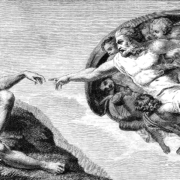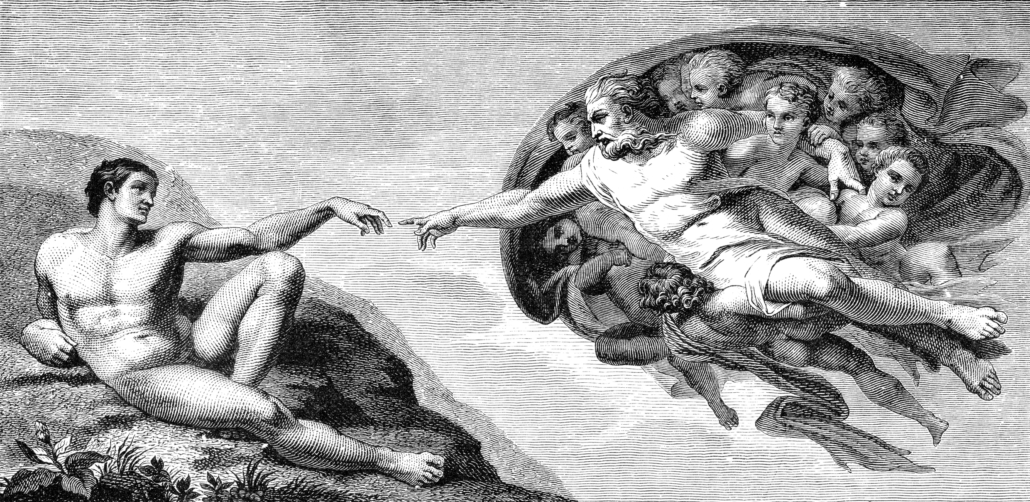
John Locke and the Second Treatise of Government
John Locke (1632–1704) was one of the greatest philosophers in Europe at the end of the seventeenth century. Locke grew up and lived through one of the most extraordinary centuries of English political and intellectual history. It was a century in which conflicts between the Crown and Parliament and the overlapping conflicts between Protestants, Anglicans and Catholics swirled into civil war in the 1640s.1
Locke’s Second Treatise of Government was published in 1690 and would heavily influence the political philosophies of those who would go on to craft the “Declaration of Independence.” Some would argue that the Founders, “….succeeded admirably in condensing Locke’s fundamental argument into a few hundred words.”2
In his Second Treatise of Government, John Locke dismantled the flawed philosophy supporting the idea that monarchs could justify their authority over their subjects by claiming to be Divinely superior to any human court or governing body.3
He said…
For Men being all the Workmanship of one Omnipotent, and infinitely wise Maker; All the Servants of one Sovereign Master, sent into the world by his order and about his business, they are his Property, whose Workmanship they are, made to last during His, not one another’s Pleasure.4
By saying that all men were the “…workmanship of one omnipotent and infinitely wise maker,” he was stripping away the manufactured rank and title that some had asserted as a way to elevate themselves over their peers. Rather, we were to perceive ourselves as equals having been created by God in His Image for His Purpose and not our own.
You can see both his verbiage and his thinking represented in the opening lines of the “Declaration of Independence” penned by Thomas Jefferson when he said:
We hold these truths to be self-evident, that all men are created equal, that they are endowed by their Creator with certain unalienable Rights, that among these are Life, Liberty and the pursuit of Happiness.5
While many throughout history would sort men according to distinguished sounding titles and family crests, the United States built its argument on the platform that says our rights are not a king’s to dispense, but they are God’s to guarantee.
The Law of Nature
But because the Declaration doesn’t cite a specific chapter and verse from Scripture, it’s tempting to wonder if those who crafted the Declaration as well as the 56 delegates that signed it were expressing an agnostic disposition towards religion and simply reinforcing their political views with an academic acknowledgement of a general, spiritual concept.
But if was the writings and philosophy of John Locke that shaped their thought processes, than it only makes sense he would impact their verbiage as well.
In an article entitled “John Locke and the Declaration of Independence” featured in the “Cleveland State Law Review,” Locke’s perspective on how a political revolt can be justified according to his theory of “natural rights” is cited as being the background from which the Declaration of Independence sprang.6
In his Second Treatise of Government, he says:
THE natural liberty of man is to be free from any superior power on earth, and not to be under the will or legislative authority of man, but to have only the law of nature for his rule. The liberty of man, in society, is to be under no other legislative power, but that established, by consent, in the commonwealth; nor under the dominion of any will, or restraint of any law, but what that legislative shall enact, according to the trust put in it.7
According to Locke, Humanity, in its original, “natural” state, enjoys a status of perfect freedom to enjoy and protect all that is afforded to him by the Law of Nature.
“Natural Rights,” then, refer to the unhindered ability to, not only engage the opportunities and benefits represented by the Law of Nature, but to also exact justice on those who would infringe upon those things that are considered inalienable.8
But what is the Law of Nature? If a person’s rights and their individual freedoms are both defined and guaranteed by the Law of Nature, is it only that which is arrived at by Reason and Time, or is there a definitive Source that transcends the collective mindset of a civilized group or even the educated individual?
Locke answers that question in his “Questions Concerning the Law of Nature…”
This law of nature can, therefore, be so described [as a law] because it is the command of the divine will, knowable by the light of nature, indicating what is and what is not consonant with a rational nature, and by that every fact commanding or prohibiting.9
Locke saw the Law of Nature as the system of Absolutes put in place by God Himself that define the difference between right and wrong and establishes the inherent dignity and worth of every person.
So, when you see that verbiage in the Declaration of Independence, and you can know for certain that it was the writings and political philosophies of John Locke that informed their convictions, you can confidently say that any reference to “Providence” or “Creator” or “Supreme Judge of the world” is referring to the same God that Locke referred to as the basis for his political theories.
The Importance of Context
When you’re attempting to evaluate the political landscape of 1776, you have to remember that you’re looking at a timeframe that was meticulously shaped by the previous two century’s approach to government and the church.
As Edwin S. Gaustad says in his book, “Neither King Nor Prelate…”
…it’s easy to persuade ourselves that a comprehension of American history requires going back no father than, say, the Age of Jackson – surely no earlier than the inauguration of George Washington. But when that latter event took place in 1789, the British colonies of North America had nearly two centuries of history behind them. Or, to put it another way, the period from Jamestown to Washington’s assumption of office would stretch in the other direction from Washington’s presidency to that of Richard Nixon.10
The New World was initially settled by those seeking to escape religious persecution. It was things like the Act of Uniformity11 that compelled those who were resolved to base their relationship with Christ on a purely biblical foundation that inspired them to sacrifice all that was familiar and face all of the dangers and challenges inheritant to life in an undeveloped wilderness.
But even in the New World, while there was opportunity for Quakers and Baptists that were nonexistent in Europe, by the time of the Revolution, the dominating schools of thought were those of the Anglicans and the Congregationalists. While today an Episcopal and a Presbyterian aren’t going to necessarily get into an argument over specific points of doctrine, back then it was more than just doctrinal differences.
The Act of Uniformity dictated how you were to set up your church government, how you were to pray and how you were to conduct your worship services.12 Part of the “Common Book of Prayer” included having to swear allegiance to the ruling monarch as the “Supreme Governor of the Church.”13
The “establishment” of a religion is not being accomplished by the presence of the Ten Commandments in a public building anymore than Congress proclaiming a national day of prayer and fasting. 12 Nor are you “preventing the free exercise thereof” by saying “Merry Christmas” anymore than Benjamin Franklin was articulating a spiritual mandate when, along with David Hartley, he began the Treaty of Paris with “In the name of the most Holy and Undivided Trinity.”13
The First Amendment, interpreted in its proper context, is nothing more than the government saying that you have the right to choose which church you want to attend.
It doesn’t mean that you have the right to reimagine the historical and practical context of the Constitution so you can assert a different philosophical foundation to replace the biblical basis upon which our nation is built.
Conclusion
Most want to believe that the separation of church and state is a gag order. You don’t talk about Christianity. You tolerate the words on our currency, but you don’t invoke them as anything other than a meaningless tradition because of the way it implies a Standard that prevents the individual from asserting himself as his own moral Absolute. You dismiss the words of the Declaration of Independence that refer to the “Supreme Judge of the World” as a generic deity that doesn’t interact with humanity apart from simply setting the universe in motion. You say the Pledge of Allegiance, but gloss over that part about “under God” and imagine it to be an antiquated tradition that needs to be discarded.
But that was not the collective spiritual disposition of the Second Continental Congress let alone the people they represented. When John Adams wrote to his wife to describe the spiritual composition of the delegates that gathered in Philadelphia, he referenced specific denominations of the Christian faith, all of which acknowledged the Deity of Christ…
When the Congress first met, Mr. Cushing first made a motion that it should be opened with prayer. It was opposed by one or two, because we were so divided in religious sentiments – some were Episcopalians, some Quakers, some Anabaptists, some Presbyterians, and some Congregationalists – that we could not agree in the same act of worship. Mr. Samuel Adams rose and said, “He was no bigot, and could hear a prayer from a gentleman of piety and virtue, who was at the same time a friend to his country. He was a stranger in Philadelphia, but had heard that Mr. Duche deserved that character and, and therefore he moved that Mr. Duche, an Episcopalian clergyman, might be desired to read prayers to th Congress tomorrow morning.”14
And while the collective conviction of the Second Continental Congress was decidedly a Christian perspective, you could say the same for the context of the words used in the Declaration in that it was influenced by the writings of John Locke. The “Natural Law” and the rights of men were derived from the Absolute of God’s Authority. You can see him point even more specifically to his philosophical starting point in, “The Reasonableness of Christianity” where he says…
It is not enough to believe him to be the Messiah, unless we also obey his laws, and take him to be our king to reign over us.15
Regardless of how you try to put some distance between the ideas that shaped our approach to liberty and the biblical foundation that justified those ideas, you inevitably come up short because of the way those who crafted our Constitution, inspired the Declaration of Independence, and risked their lives and fortunes by standing up to tyranny made frequent references to Christ, God, Scripture and the Truth that cannot, nor will it ever, be denied.
It is the God of the Bible that is the Supreme Judge of the Word, the Creator, the measure by which we guage the moral rectitude of our intentions and He is the Author of the Natural Law.
1. “John Locke”, “Stanford Encyclopedia of Philosophy”, https://plato.stanford.edu/entries/locke/#SecoTreaGove, accessed January 22, 2023
2. “The American Constitution, Its Origins and Development”, Alfred Hinsey Kelly, Winfred Audif Harbison, W. W. Norton & Company, New York, NY, 1963, p90
3. “Divine Right of Kings”, Britannica, https://www.britannica.com/topic/divine-right-of-kings, accessed January 22, 2023
4. “The Project Gutenberg eBook of Second Treatise of Government, by John Locke”, Gutenberg.org, https://www.gutenberg.org/files/7370/7370-h/7370-h.htm, accessed January 22, 2023
5. (n.d.). Declaration of Independence: A Transcription. National Archives. Retrieved January 14, 2023, from https://www.archives.gov/founding-docs/declaration-transcript
6. “The Project Gutenberg eBook of Second Treatise of Government, by John Locke”, Gutenberg.org, https://www.gutenberg.org/files/7370/7370-h/7370-h.htm, accessed May 9, 2023
7. Ibid
8. In his Second Treatise of Government, Locke says, “Man being born, as has been proved, with a title to perfect freedom, and an uncontrolled enjoyment of all the rights and privileges of the law of nature, equally with any other man, or number of men in the world, hath by nature a power, not only to preserve his property, that is, his life, liberty and estate, against the injuries and attempts of other men; but to judge of, and punish the breaches of that law in others, as he is persuaded the
offence deserves, even with death itself, in crimes where the heinousness of the fact, in his opinion, requires it.” (“The Project Gutenberg eBook of Second Treatise of Government, by John Locke”, Gutenberg.org, https://www.gutenberg.org/files/7370/7370-h/7370-h.htm, accessed May 9, 2023)
9. “Questions Concerning the Law of Nature”, John Locke, Cornell University Press, Ithaca and London, 1990, p101
10. “Neither King Nor Prelate”, Edwin S. Gaustad, William B. Eerdmans Publishing Co., Grand Rapids, Michigan, 1987, p12
11. “The Act of Uniformity” was conceived in 1558 and passed by Parliament in 1559. Its purpose was to regularize prayer, worship and the administration of sacraments in the Church of England. In addition, all persons had to attend Anglican worship services once a week or be fined 12 pence which amounted to about three days wages. (“Act of Uniformity 1558”, “Wikipedia”, https://en.wikipedia.org/wiki/Act_of_Uniformity_1558, accessed May 20, 2023)
In 1662, the scope of “The Act of Uniformity” was enhanced to include the mandate that all ministers be ordained according to an Episcopal format and anyone who held an office within the church was to swear allegiance to the monarchy. (“Act of Uniformity 1662” “Wikipedia”, https://en.wikipedia.org/wiki/Act_of_Uniformity_1662, accessed May 20, 2023 | “Act of Uniformity”, “Encyclopedia.com”, https://www.encyclopedia.com/history/modern-europe/british-and-irish-history/act-uniformity, accessed May 20, 2023)
12. Church Government, according to the Anglican format, was defined according to a priest who answered to a Bishopa. It was similar to a Catholic hierarchy, although they rejected the authority of the Pope. The result was a state supported enterprise that was centrally controlled by a network of bishops who ultimately answered to an Archbishopb. This is inconsistent with the Bible that sets up church government using individuals that were selected from within the congregation according to their spiritual maturity (Titus 1:5-9).
The Church of England used its authority to arrest ministers for preaching without a license.12c. The Great Awakening directed people to the Bible as that which defined and established an individual’s relationship with Christ, as opposed to a sacrament or relying on a minister.12d Even one’s prayerlife was being reevaluated as something that was deeply personal and based on The Lord’s Prayer as opposed to something dictated by the “Common Book of Prayer,” which included having to swear allegiance to the reigning monarch as the Supreme Governor of the Church.12e. (12a. “Enclycopedia.com” “Anglicanism and Revolution”, https://www.encyclopedia.com/history/news-wires-white-papers-and-books/anglicanism-and-revolution, accessed May 14, 2024 | 12b. “The Episcopal Church”, “An Episcopal Dictionary of the Church”, https://www.episcopalchurch.org/glossary/archbishop/, accessed May 14, 2024 | 12c. “The Presbyterian Historical Society”, “Presbyterians and the American Revolution”, https://www.history.pcusa.org/history-online/exhibits/asserting-right-religious-freedom-page-2, accessed May 14, 2024 | 12d. “Great Awakening”, https://www.history.com/topics/european-history/great-awakening, accessed April 5, 2023 | 12e. “The Book of Common Prayer”, “The 1662 Book of Common Prayer:
The Original Manuscript”, http://justus.anglican.org/resources/bcp/1662/Orig_manuscript/ordinal.htm, accessed May 14, 2024)
13. Ibid (see also “Wikipedia”, “Oath of Supremacy”, https://en.wikipedia.org/wiki/Oath_of_Supremacy, accessed May 14, 2024)
14. “Massachusetts Historical Society”, “Letter from John Adams to Abigail Adams, 16 September 1774”, https://www.masshist.org/digitaladams/archive/doc?id=L17740916ja, accessed May 17, 2024
15. “Online Library of Liberty”, “The Works, Volume 6 – The Reasonableness of Christianity”, https://oll.libertyfund.org/titles/locke-the-works-vol-6-the-reasonableness-of-christianity, accessed May 20, 2024
For more excellent reading, refer to “The Appropriation of Locke” by Joseph Laconte Ph.D.























You must be logged in to post a comment.